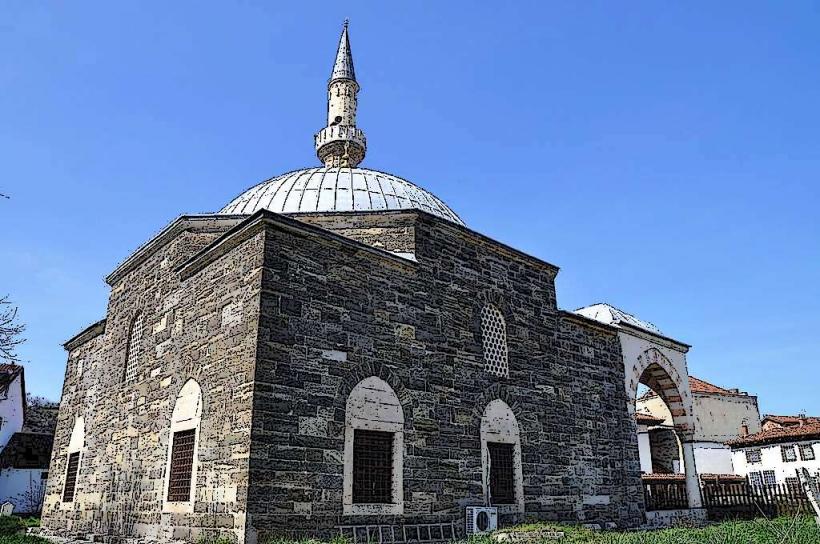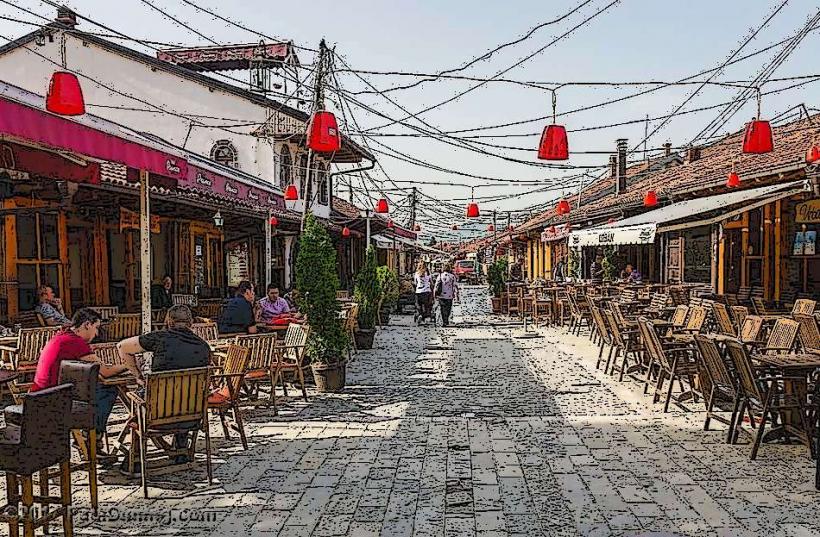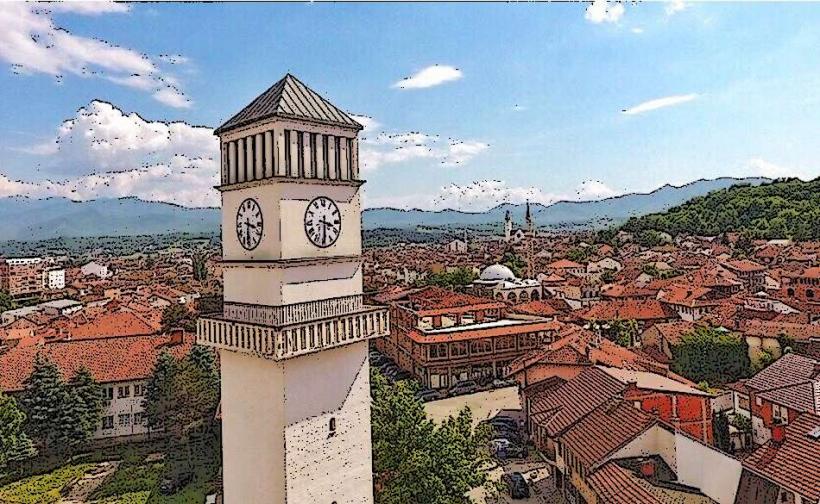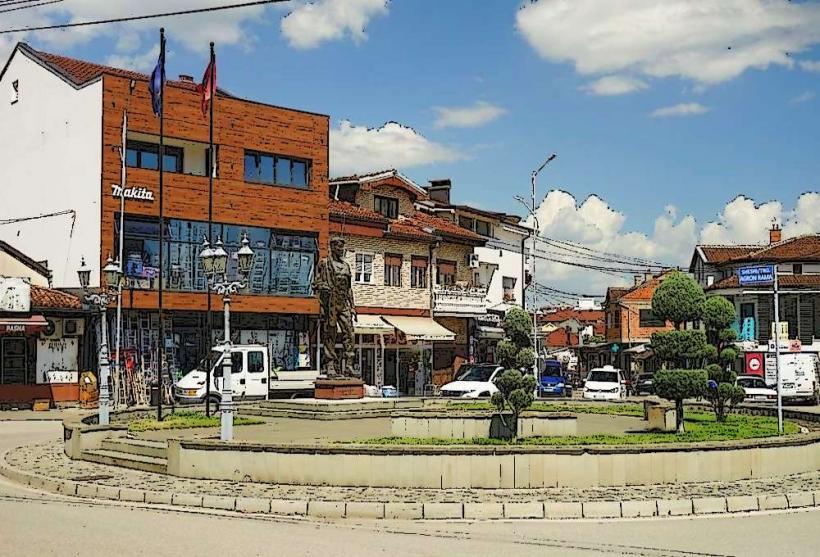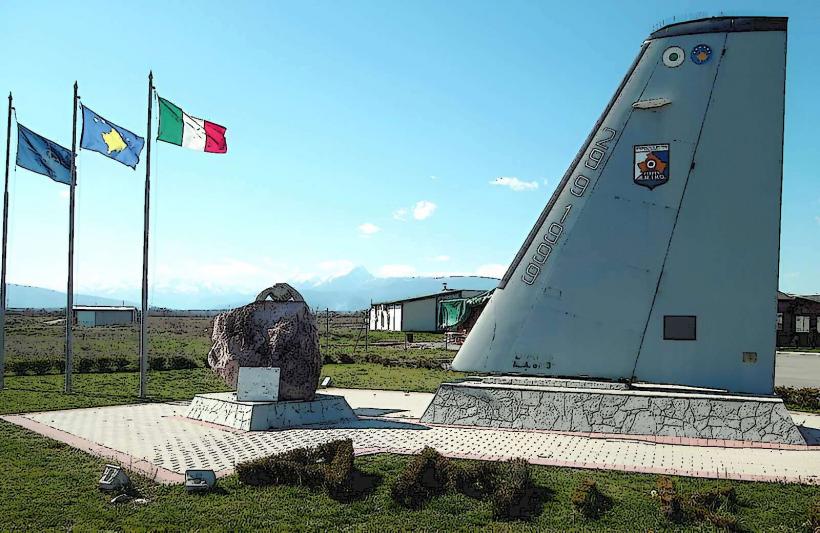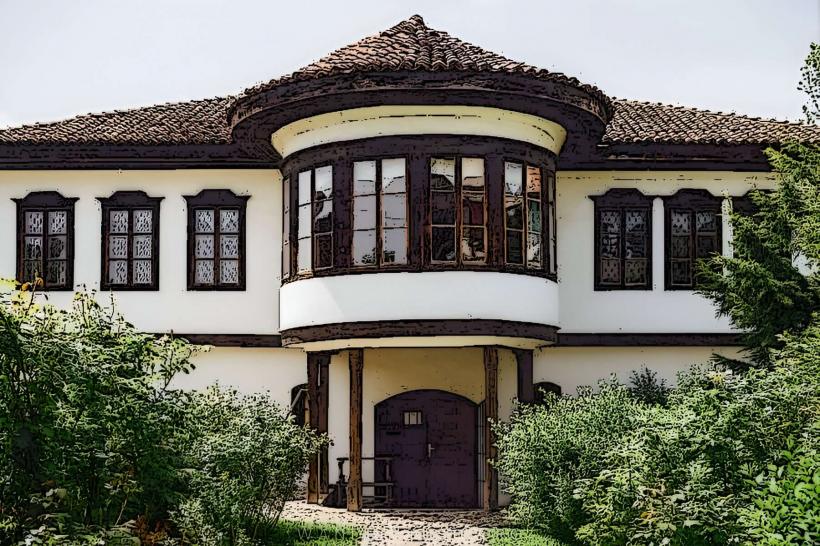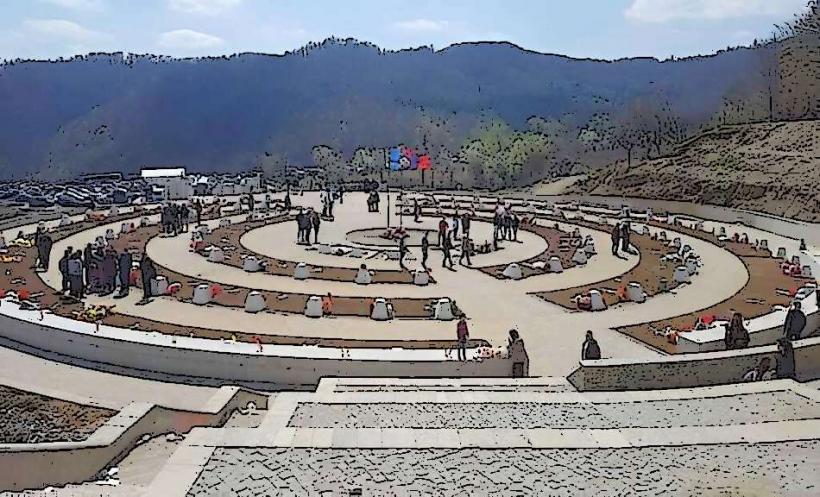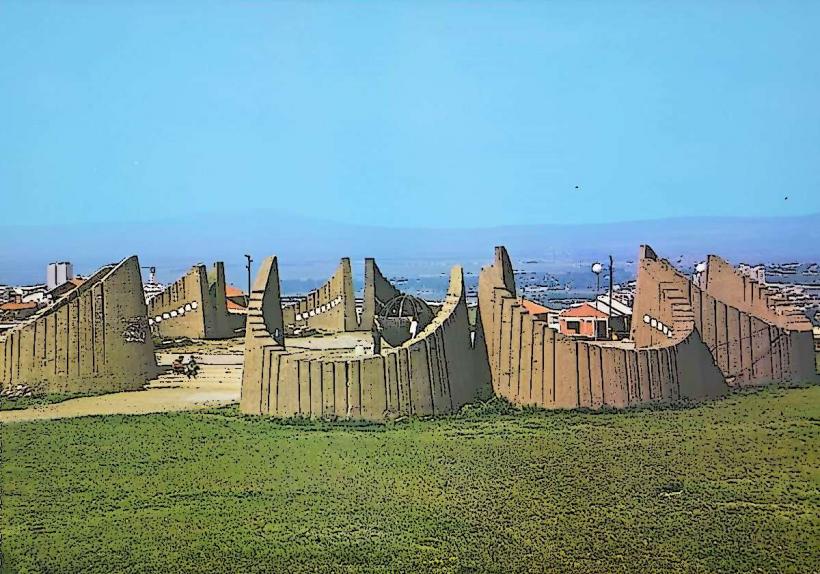Information
Landmark: Albanian League of PrizrenCity: Gjakova
Country: Kosovo
Continent: Europe
Albanian League of Prizren, Gjakova, Kosovo, Europe
The Albanian League of Prizren (Lidhja Shqiptare e Prizrenit) in Gjakova refers to the historic house and museum complex where the local branch of the League was active. It is situated 36 kilometers south of Peja, located within the central historical district of Gjakova.
Visual Characteristics
The site consists of a traditional two-story stone and timber building (kulla) featuring a large wooden porch (çardak). The exterior is characterized by white-plastered walls, small wooden-framed windows, and a steep roof covered in traditional red clay tiles. The interior contains heavy wooden beams, carved ceilings, and open floor plans typical of late 19th-century regional civic architecture.
Location & Access Logistics
The building is located near the Krena River, at the edge of the Grand Bazaar (Çarshia e Madhe). From Peja, follow the R107 highway directly into Gjakova; the drive takes approximately 45 minutes. Pedestrian access is through the cobblestone streets of the bazaar. Public parking is available at the municipal lot 300 meters to the east. Intercity buses from Peja to Gjakova stop at the main station, roughly 1 kilometer from the site.
Historical & Ecological Origin
This specific site served as a meeting point for the Gjakova branch of the League of Prizren, a political organization founded in 1878 to defend Albanian territorial integrity. The building was the residence of Abdullah Pashë Dreni, where a significant skirmish took place in September 1878 between League forces and Ottoman officials. The structure has been restored multiple times, most recently following the 1999 conflict.
Key Highlights & Activities
Visitors can tour the interior rooms which house historical documents, period weaponry, and maps related to the 19th-century national movement. The site provides a detailed look at the "Oda" (guest room) culture and its role in political decision-making. Photography of the traditional architecture and the memorial plaques is a primary activity.
Infrastructure & Amenities
Restrooms are located within the museum complex for visitors. The surrounding bazaar offers various shaded seating areas and cafes. 5G cell phone coverage is robust. There are no on-site food vendors, but the Grand Bazaar’s restaurants and bakeries are located within 100 meters of the entrance.
Best Time to Visit
The museum is best visited during standard morning hours (09:00–12:00) when natural light best illuminates the interior exhibits. May through September offer the most comfortable conditions for walking between the museum and the adjacent landmarks. The site is closed on weekends and national holidays.
Facts & Legends
The site is famous for the "Gjakova Incident" of 1878, where the League's determination was first tested in an armed conflict against the Ottoman Marshall Mehmet Ali Pasha. A local "secret" is the presence of original 19th-century stonework in the basement levels that survived several fires and reconstructions throughout the building's history.
Nearby Landmarks
Gjakova Grand Bazaar – 0.2km West
Hadum Mosque – 0.4km Southwest
Clock Tower (Sahat Kulla) – 0.3km North
Krena River Bridge – 0.1km South
Sheikh Emin’s Tekke – 0.6km North

